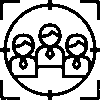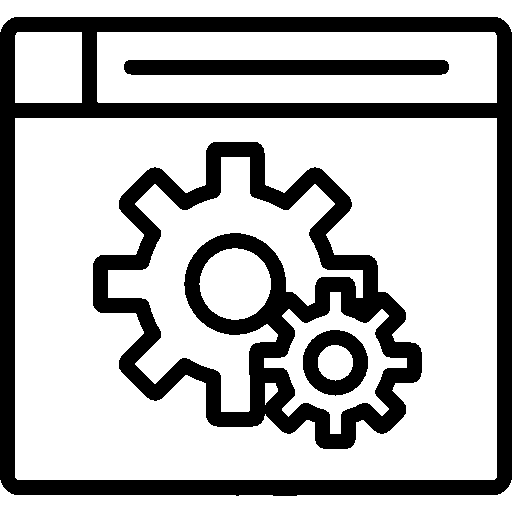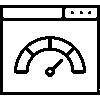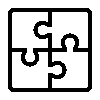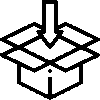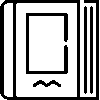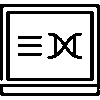Projects - User Interface
-
Entrance
This is the login screen of the Projects application.

The Settings menu includes Projects, Project Categories, Project Components, Statistics, Kanbans, Log Records, Basic Components.
-
Projects
Projects; It is divided into Open Projects, Pending, Test Status Stage, In Process, Completed, Delayed Projects, Closed Projects, Canceled Projects, All Projects, Deleted Projects.
Open Projects
On the Open Projects screen, Project Code, Customer Information, Project Information, Phase / Status, Connected Product, Members, Transaction, Number of Tasks, Duration, Record Date, Update Date, Plan. Start Date, Plan. End Date, Estimated End Date, Actual Start Date, Actual End Date information is included in a table. In this way, information about the projects can be accessed in a single table.
Pending On the Pending screen, the project's Project Code, Customer Information, Project Information, Phase / Status, Connected Product, Members, Transaction, Number of Tasks, Duration, Registration Date, Update Date, Plan Start Date, Plan End Date, Estimated Completion, Actual Start Date, Pending projects with Actual Completion Date information are listed in a tabular form.
Test Case Stage
On the Test Status Stage screen, the project's Project Code, Customer Information, Project Information, Status, Connected Product, Members, Transaction, Number of Tasks, Duration, Record Date, Update Date, Plan Start Date, Plan End Date, Estimated Completion, Actual Start Date, Actual End Date information is listed in the test-case phase in tabular form.
in process
On the In Process screen, the project's Project Code, Customer Information, Project Information, Status, Connected Product, Members, Transaction, Number of Tasks, Duration, Record Date, Update Date, Plan Start Date, Plan End Date, Estimated Completion, Actual Start Date, Actual End Date. Projects whose information is in progress are listed in a tabular form.
Completed
On the Completed screen, the project's Project Code, Customer Information, Project Information, Status, Connected Product, Members, Transaction, Number of Tasks, Duration, Registration Date, Update Date, Plan Start Date, Plan End Date, Estimated Finish, Actual Start Date, Actual End Date Completed projects are listed in tabular form.
Delayed Projects
On the Overdue Projects screen, the project's Project Code, Customer Information, Project Information, Status, Connected Product, Members, Transaction, Number of Tasks, Duration, Record Date, Update Date, Plan Start Date, Plan End Date, Estimated Finish, Actual Start Date, Actual Finish. Delayed projects are listed in a table with historical information.
Closed Projects
On the Closed Projects screen, closed projects are listed in a table with the project's Project Code, Customer Information, Project Information, Connected Product, Members, Transaction, Number of Tasks, Duration, Record Date, Actual Start Date, Actual End Date, Project Remaining Days Closing Date information.
Canceled Projects
On the Canceled Projects screen, the canceled projects are listed in a table with the project's Project Code, Customer Information, Project Information, Connected Product, Members, Transaction, Number of Tasks, Duration, Recording Date, Cancellation Date information.
All Projects
On the All Projects screen, Project Code, Customer Information, Project Information, Phase / Status, Connected Product, Members, Transaction, Number of Tasks, Duration, Record Date, Update Date, Plan Start Date, Plan End Date, Actual Start Date, Actual End Date information. All projects are listed in a tabular form.
Deleted Projects
On the Deleted Projects screen, deleted projects are listed in a table with the project's Project Code, Customer Information, Project Information, Connected Product, Members, Transaction, Number of Tasks, Duration, Recording Date, Deletion Date information.
-
Project Categories
Projects are easily managed by dividing them into categories depending on the company. The project category is added from the settings menu.

On the Project Categories screen, Project Code, Customer Information, Project Information, Phase / Status, Connected Product, Members, Transaction, Number of Tasks, Duration, Record Date, Update Date, Plan Start Date, Plan End Date, Estimated Completion, Actual Start Date, Actual End Date information is listed in tabular form.
-
Project Components
Project Components; It is divided into five parts: Risk and Problem Management, Lessons Learned, Requirements List, Survey and Attendance Control.
Risk and Problem Management
This is the screen where risks and problems are displayed.

On the Risk and Problem Management screen, Project Code, Title, Priority, Type, Status, Category, Action, Creator information are listed in a table.
Lessons Learned
This is the screen where the lessons learned are displayed.

On the Lessons Learned screen, Project Code, Incident, Suggestion, Status, Approval, and Creator information are listed in a table.
Requirement list
This is the screen where the requirement lists are displayed.

On the Requirement List screen, Project Code, Title, Status, Priority, Quantity, Creator information are listed in a table.
All Surveys
This is the screen where surveys are displayed.

On the All Surveys screen, No., Project Code, Survey Name, Related People, Number of Participants, Survey Type, Registration Date information are listed in a table.
Attendance Check
This is the screen where the continuation of My Projects is checked.

On the Attendance Control screen, Personnel Name, Project, Work. Or.(%), Real. Work. Or.(%) and monthly chart are included.
-
Statistics
This is the screen where the statistics of project members are displayed.

Project members' open projects, closed projects, canceled projects, and total projects are tracked based on quantitative data.
-
Kanbans
Kanban is a visual management method used to manage business processes and workflow.

On the Kanban screen, Title, Columns, Responsible Person, Creation Date information are listed in a table.
A kanban record is added by pressing the Add New button.

To add Kanban detail, Relevant Application, Title, Stage, Urgency, Start Date, End Date, Category and Columns information is entered. After all operations are completed, they are saved by pressing the Save button.
The kanban detail is edited by pressing the edit bar of the added kanban detail.
General Information



General information is edited. After all operations are completed, they are saved by pressing the Save button.
columns

The Columns information screen includes Heading and Items information.
A column is added by pressing the Add New Column button. To add columns, Heading and Items information is entered. After all operations are completed, they are saved by pressing the Save button.
Related Users

The responsible and relevant people for the project are displayed. A person is added by pressing the Add New Person button.
-
Log Records

On the Loh records screen, User Name, Record Title, Description, Transaction Status, Date information are listed in a table.









